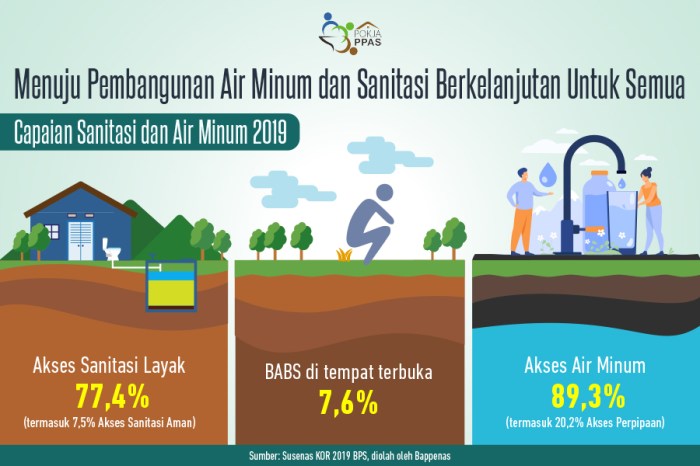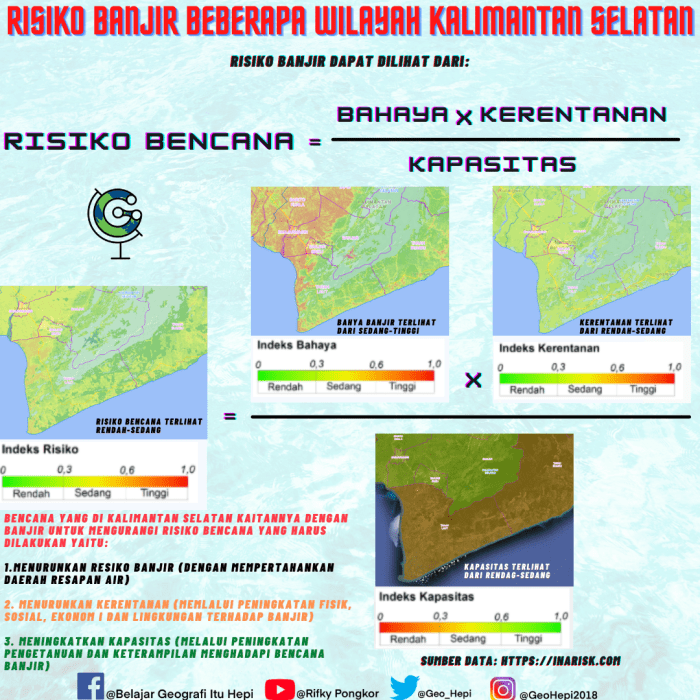Evaluasi Game Interaktif Bahasa Portugis
“Evaluasi Keberhasilan Penggunaan Teknologi Pembelajaran Interactive Language Games dalam Pembelajaran Bahasa Portugis” – Yo, what’s up, future fluent Portuguese speakers? This ain’t your grandma’s language class. We’re diving deep into how awesome interactive games can totally level up your Portuguese skills.
Think less boring textbooks, more epic quests to master grammar and vocab. Get ready to unlock a whole new world of language learning!
Studi ini menyelidiki efektivitas penggunaan permainan bahasa interaktif dalam pembelajaran bahasa Portugis. Kita akan melihat berbagai jenis game, bagaimana cara kerjanya, faktor-faktor yang mempengaruhi keberhasilannya, dan bagaimana mengukur dampaknya pada kemampuan siswa. Dari desain game hingga analisis data, kita akan mengungkap rahasia sukses dalam pembelajaran bahasa Portugis yang seru dan efektif.
Penggunaan Interactive Language Games dalam Pembelajaran Bahasa Portugis
Yo, what’s up, future fluent Portuguese speakers? Learning a new language can be, like, totally rad, but it can also feel like climbing Mount Everest in flip-flops. That’s where interactive language games come in – they’re the secret weapon to make learning fun and, dare I say, -easy*.
This article will totally break down how these games can totally level up your Portuguese skills.
Berbagai Jenis Interactive Language Games untuk Pembelajaran Bahasa Portugis
Forget boring textbooks, dude! Interactive language games offer a seriously awesome way to learn Portuguese. Think of it as leveling up your language skills while having a blast. Here are five killer games that’ll have you speaking Portuguese like a pro in no time.
- Jogo da Memória (Memory Game):This classic game uses flashcards with Portuguese words and their English translations. Matching pairs reinforces vocabulary. It’s super chill for beginners and a great way to build confidence.
- Bingo de Palavras (Word Bingo):The teacher calls out Portuguese words, and students mark them on their bingo cards. This is awesome for vocabulary review and listening comprehension. It’s a total crowd-pleaser.
- Caça ao Tesouro (Treasure Hunt):Students follow clues written in Portuguese to find a hidden “treasure.” This game improves reading comprehension and vocabulary in a super engaging way. Get ready for some serious adventure!
- Adivinhe a Palavra (Guess the Word):One student describes a word in Portuguese without saying it, and the others guess. This hones descriptive skills and vocabulary. It’s like a super fun charades, but with Portuguese words.
- Role-Playing Scenarios:Students act out everyday scenarios in Portuguese, like ordering food or asking for directions. This improves conversational fluency and practical application. This is the ultimate test of your skills.
Perbandingan Tiga Jenis Interactive Language Games
Here’s a lowdown on three different interactive games, comparing their difficulty, the language skills they work on, and which learning levels they’re best for. Think of it as a cheat sheet for choosing the perfect game for your current skill level.
| Game | Tingkat Kesulitan | Keterampilan Bahasa | Level Pembelajaran |
|---|---|---|---|
| Jogo da Memória | Mudah | Membaca, Menulis | Pemula |
| Bingo de Palavras | Sedang | Mendengar, Membaca | Menengah |
| Role-Playing Scenarios | Sulit | Mendengar, Berbicara | Mahir |
Rancangan Interactive Language Game: Kosakata Makanan
Let’s design a game, yo! This one focuses on Portuguese food vocabulary. It’s all about making learning fun and effective.
Mekanisme Permainan:Students are presented with pictures of different Portuguese foods. They must type or say the correct Portuguese word for each food. Points are awarded for correct answers. Think of it as a supercharged flashcard experience.
Target Keterampilan Bahasa:Vocabulary (food-related), spelling (if typing), pronunciation (if speaking).
Cara Penilaian:Points are awarded for each correct answer. A final score is calculated based on the total number of correct answers. It’s simple, straightforward, and totally effective.
Alur Cerita untuk Interactive Language Game: Percakapan Sehari-hari
Here’s a storyline for a game focusing on everyday Portuguese conversations. This will totally help you rock those real-life conversations.
Storyline:The player is a tourist in Lisbon, Portugal. They need to navigate various situations, like ordering coffee, asking for directions, or buying souvenirs. Each successful conversation unlocks the next scene. Think of it as a choose-your-own-adventure, but with a Portuguese twist.
Integrasi Interactive Language Games ke dalam Rencana Pelajaran Bahasa Portugis Tingkat Menengah
Integrating these games into your lessons is easier than you think. Here’s the scoop.
Interactive language games can be used as warm-up activities, review sessions, or even as the main focus of a lesson. They can be incorporated into various parts of the curriculum to boost engagement and retention. For example, a Bingo game can be used to review vocabulary learned in a previous lesson, while a role-playing scenario can be used to practice conversational skills.
The key is to choose games that are appropriate for the students’ level and learning objectives.
Aspek-aspek yang Mempengaruhi Keberhasilan Penggunaan Interactive Language Games
Yo, what’s up, future fluent Portuguese speakers? Let’s dive into what makes interactive language games totally slay in the classroom, and what might throw a wrench in the gears. We’re talking about the real deal here – the factors that determine whether these games are a total win or a major fail.
Think of it like leveling up in a video game; you need the right skills, equipment, and strategy to conquer those boss battles (aka, mastering Portuguese!).
Faktor-faktor yang Mempengaruhi Keberhasilan dari Sisi Siswa dan Guru
Okay, so we’re talking about the human element here – the students and teachers. This ain’t just about the tech; it’s about the people using it. Student engagement is key – if they’re not vibing with the game, it’s game over.
Teacher prep and enthusiasm also matter big time. A stoked teacher makes for stoked students. Think of it like this: a teacher who’s all about the games will get students hyped, while a teacher who’s dragging their feet will totally kill the vibe.
Peran Teknologi dan Infrastruktur
Let’s be real, tech plays a huge role. You need reliable internet, compatible devices, and software that doesn’t crash every five minutes. Imagine trying to play a sick online game with lag – total buzzkill! The tech needs to be seamless and user-friendly.
If the tech is a total mess, it’s gonna be a major distraction, and the learning will totally suffer. Think reliable Wi-Fi, updated software, and devices that are easy to use – that’s the winning formula.
Langkah-langkah Persiapan dan Pelaksanaan oleh Guru
Alright, teachers, listen up! Here’s the game plan to make these interactive language games totally awesome. Proper planning is crucial – you don’t want to just throw a game at your students and expect magic to happen.
- Choose the right game:Select games aligned with learning objectives and student levels. Don’t pick something too easy or too hard; find the sweet spot.
- Test the tech:Make sure everything works before class. Nobody wants to waste precious learning time troubleshooting tech issues.
- Provide clear instructions:Explain the game’s rules and objectives clearly. Nobody likes being confused and lost in the game.
- Monitor and support:Keep an eye on students and provide assistance when needed. Be ready to answer questions and offer guidance.
- Integrate with other activities:Don’t just use games in isolation. Connect them to other learning activities to reinforce concepts.
- Gather feedback:Ask students for feedback on the games. What did they like? What could be improved?
Tantangan Implementasi dan Cara Mengatasinya
Let’s be real, things don’t always go smoothly. You might encounter some roadblocks along the way. But don’t sweat it; here’s how to handle some common challenges.
- Limited access to technology:If you have limited devices or internet access, consider using a blended learning approach – a mix of online and offline activities.
- Lack of teacher training:If teachers aren’t comfortable with the tech, provide them with training and support. Workshops and mentorship programs can be a huge help.
- Student engagement issues:If students aren’t engaged, try different games or adjust the game’s difficulty. Sometimes a change of pace is all you need.
- Technical difficulties:Have a backup plan in case of technical glitches. Keep some offline activities ready just in case.
Evaluasi Efektivitas Interactive Language Games
It’s all about the results, right? How do you know if these games are actually helping students learn? You need to measure their progress. This could involve assessing their vocabulary, grammar, and conversational skills through tests, quizzes, and even informal observations during the games themselves.
Think of it as a post-game analysis – what worked, what didn’t, and what needs improvement.
Evaluasi dan Pengukuran Keberhasilan
Yo, what’s up, future Portuguese speakers? We’re diving deep into how we can totally nail the assessment of interactive language games in your Portuguese class. Think of this as the ultimate “did it work?” check-up, but way more rad.
We’re gonna break down the best methods to see if those games actually boosted your skills. Get ready to level up your understanding!
Metode Evaluasi Keberhasilan
Evaluating the effectiveness of interactive language games requires a multi-faceted approach. It’s not just about seeing if students had fun (though that’s a major plus!), but also whether their Portuguese skills improved. We’re talking about measuring real progress, dude.
- Pre-test and Post-test:A classic method, comparing scores before and after using the games reveals improvement in vocabulary, grammar, and comprehension.
- Observasi Kelas:Direct observation during game play can show how engaged students are and how effectively they’re using the target language. This can also show areas where students may struggle, leading to targeted adjustments.
- Kuesioner dan Survei:Gathering student feedback through surveys or questionnaires helps understand their perception of the games’ effectiveness and identify areas for improvement. Think of it as a super-chill, low-key way to get the inside scoop.
- Portofolio:Students can compile their work throughout the learning process, showcasing their progress and improvement in different aspects of the language.
Contoh Instrumen Evaluasi
Alright, let’s get specific. Here are some examples of evaluation tools that can totally rock your Portuguese assessment:
- Tes Tertulis:Multiple-choice questions, fill-in-the-blanks, short answer questions, and essay questions can assess vocabulary, grammar, and comprehension.
- Tes Lisan:Role-playing, interviews, and presentations allow for assessment of speaking and listening skills. This could be a casual convo or a more structured presentation, depending on the level.
- Skala Likert:Using a Likert scale in questionnaires allows for quantifiable feedback on aspects like game engagement, learning effectiveness, and perceived improvement.
Indikator Keberhasilan, Metode Pengukuran, dan Interpretasi
| Indikator Keberhasilan | Metode Pengukuran | Interpretasi Hasil |
|---|---|---|
| Peningkatan skor pada tes lisan dan tulis | Perbandingan skor pre-test dan post-test | Peningkatan skor yang signifikan menunjukkan efektivitas game. |
| Peningkatan partisipasi aktif siswa dalam kelas | Observasi kelas dan catatan guru | Partisipasi aktif yang meningkat menunjukkan peningkatan keterlibatan dan motivasi. |
| Umpan balik positif dari siswa terhadap game | Kuesioner dan survei | Umpan balik positif menunjukkan penerimaan game yang baik dan efektivitasnya dalam pembelajaran. |
| Peningkatan kemampuan siswa dalam menggunakan kosakata dan tata bahasa Portugis | Analisis portofolio siswa | Peningkatan penggunaan kosakata dan tata bahasa yang tepat menunjukkan peningkatan kemampuan berbahasa. |
Prosedur Pengumpulan dan Analisis Data
Data collection will involve administering pre- and post-tests, conducting classroom observations, and distributing questionnaires. Data analysis will include calculating mean scores, comparing pre- and post-test results, analyzing qualitative data from observations and questionnaires, and identifying trends and patterns. Statistical analysis may be employed to determine the significance of the findings. This whole process needs to be documented thoroughly.
Penyampaian Hasil Evaluasi kepada Stakeholder
Sharing the results is key, man! We need to make sure everyone – the school, parents, and students – know what’s up. This can be done through reports, presentations, or informal meetings. Keep it real, and make sure the information is easy to understand.
Rekomendasi dan Saran Perbaikan
Yo, peeps! Setelah kita nge-review penggunaan interactive language gamesdalam pembelajaran Bahasa Portugis, sekarang saatnya kita ngebahas gimana caranya bikin pembelajaran ini makin litdan efektif. Kita bakal ngasih beberapa rekomendasi dan saran perbaikan, biar proses belajar bahasa Portugis jadi makin dopedan nggak bikin bored.
Rekomendasi Jenis Interactive Language Games Berdasarkan Tingkat Kemampuan Siswa
Nah, ini dia inti dari permasalahannya. Jenis gameyang pas itu penting banget, you know? Kalo game-nya terlalu susah buat beginner, mereka bakal stressed. Sebaliknya, kalo game-nya terlalu gampang buat siswa tingkat lanjut, mereka bakal bored. Jadi, perlu ada balanceyang pas.
- Pemula (Beginner): Gamesyang fokus pada kosakata dasar dan tata bahasa sederhana. Contohnya, matching games, fill-in-the-blank exercises, atau simple quizzesdengan visual yang menarik. Thinkgambar-gambar lucu dan warna-warna cerah!
- Menengah (Intermediate): Gamesyang melibatkan sedikit lebih banyak tantangan, seperti storytelling games, role-playing activities, atau simple conversation games. Mungkin bisa dicoba gamesyang mengharuskan mereka membuat kalimat sederhana atau menjawab pertanyaan-pertanyaan sederhana.
- Lanjut (Advanced): Gamesyang menantang kemampuan berpikir kritis dan kreativitas, seperti debates, negotiation games, atau creative writing promptsdalam Bahasa Portugis. Ini akan membantu mereka mengasah kemampuan berbahasa mereka di level yang lebih tinggi.
Saran Perbaikan Desain dan Implementasi Interactive Language Games
Desain dan implementasi gameyang jempolan itu kunci suksesnya, bro! Gimana caranya bikin gameyang seru, mudah dipahami, dan efektif?
- Antarmuka yang User-Friendly: Gameharus mudah digunakan dan dinavigasi. Hindari desain yang terlalu rumit dan membingungkan.
- Umpan Balik yang Konstruktif: Gameharus memberikan umpan balik yang jelas dan bermanfaat bagi siswa, baik itu benar atau salah. Jangan cuma bilang “Salah!”, tapi jelaskan kenapa jawabannya salah dan apa jawaban yang benar.
- Integrasi dengan Materi Pelajaran: Gameharus terintegrasi dengan baik dengan materi pelajaran yang sedang dipelajari siswa. Jangan sampai game-nya cuma randomdan nggak ada hubungannya sama materi pelajaran.
- Variasi Jenis Game: Gunakan berbagai jenis gameuntuk menjaga agar siswa tetap tertantang dan termotivasi. Jangan cuma satu jenis gameterus-terusan.
Program Pelatihan Guru dalam Menggunakan Interactive Language Games, “Evaluasi Keberhasilan Penggunaan Teknologi Pembelajaran Interactive Language Games dalam Pembelajaran Bahasa Portugis”
Guru juga perlu dibekali pengetahuan dan keterampilan dalam menggunakan interactive language gamessecara efektif. Program pelatihan yang komprehensif bisa jadi solusi!
- Workshop:Sesi pelatihan praktis yang memberikan panduan dan pelatihan langsung tentang bagaimana memilih, mengimplementasikan, dan mengevaluasi interactive language games.
- Webinar:Sesi online yang membahas tren terbaru dalam interactive language gamesdan berbagi best practicesdari guru-guru berpengalaman.
- Bahan Ajar:Buku panduan, artikel, dan video tutorial yang dapat diakses oleh guru untuk mempelajari lebih lanjut tentang interactive language games.
Pedoman Guru dalam Memilih dan Menggunakan Interactive Language Games
Berikut beberapa pedoman yang bisa diikuti oleh guru agar pemilihan dan penggunaan game-nya on point!
- Sesuaikan dengan tingkat kemampuan siswa.
- Pastikan game-nya menarik dan menyenangkan.
- Integrasikan gamedengan materi pelajaran.
- Pantau kemajuan siswa selama bermain game.
- Berikan umpan balik yang konstruktif.
Ilustrasi Interactive Language Game yang Meningkatkan Kemampuan Berbicara Siswa
Bayangkan sebuah gamebernama ” Restaurante Português“. Gameini berbentuk simulasi restoran Portugis. Siswa berperan sebagai pelayan dan pelanggan, berinteraksi menggunakan Bahasa Portugis. Aspek visualnya menampilkan restoran yang realistis dengan menu makanan dan minuman yang lengkap. Interaksinya menggunakan voice recognition, sehingga siswa dapat berlatih berbicara dan langsung mendapatkan umpan balik tentang pengucapan mereka.
Sistem akan memberikan poin berdasarkan keakuratan dan kelancaran percakapan. Semakin lancar dan akurat percakapannya, semakin tinggi poin yang didapat. Siswa juga bisa bersaing dengan teman sekelasnya untuk mendapatkan poin tertinggi. Elemen kompetitif ini menambah keseruan dan motivasi belajar.
Kesimpulan: “Evaluasi Keberhasilan Penggunaan Teknologi Pembelajaran Interactive Language Games Dalam Pembelajaran Bahasa Portugis”

So, there you have it – interactive language games are not just fun, they’re a total game-changer for learning Portuguese. By embracing technology and creative game design, we can make language learning an awesome adventure, not a chore.
Get ready to ace that next Portuguese test, and maybe even impress your amigos with your newfound fluency!
Tanya Jawab (Q&A)
Apakah game interaktif cocok untuk semua tingkat kemampuan?
Ya, game dapat disesuaikan dengan berbagai tingkat kemampuan, dari pemula hingga mahir. Tingkat kesulitan dan materi dapat disesuaikan.
Bagaimana mengatasi masalah akses teknologi yang terbatas?
Sekolah dapat menyediakan akses ke perangkat dan internet, atau menggunakan game yang dapat diakses offline.
Bagaimana melibatkan orang tua dalam proses pembelajaran?
Orang tua dapat diajak untuk memantau kemajuan anak dan memberikan dukungan, serta terlibat dalam kegiatan pembelajaran di rumah.
Apa saja contoh game interaktif selain yang dibahas dalam studi?
Ada banyak platform online dan aplikasi yang menawarkan game bahasa, seperti Duolingo, Memrise, dan Babbel.




